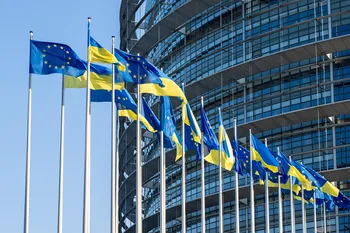
This initiative comes at a critical time, as Moldova grapples with the repercussions of external crises, notably Russia's ongoing aggression in Ukraine, which has significantly impacted its economy and stability.
Context
The Growth Plan is framed within the EU's broader enlargement policy, which aims to foster a stable and united Europe. The Commission emphasizes that Moldova's full membership in the EU is not only beneficial for the Moldovan people but is also in the EU's political and economic interest. The plan seeks to respond to the aspirations of Moldovans for a better future while addressing the socio-economic challenges exacerbated by recent geopolitical tensions.
Moldova's GDP per capita stood at only 29% of the EU average in 2023, highlighting a substantial socio-economic convergence gap. The country has faced numerous challenges, including a sharp economic contraction due to the COVID-19 pandemic and ongoing political instability fueled by external pressures. Despite these difficulties, Moldova has shown resilience, implementing essential reforms since applying for EU membership in March 2022.
Key Components of the Growth Plan
- Accelerate Socio-Economic and Fundamental Reforms: This pillar focuses on implementing a dedicated Reform Agenda that aligns with Moldova’s EU accession process. It aims to enhance economic competitiveness, governance, and social capital while promoting green and digital transitions.
- Enhance Access to the EU Single Market: By improving Moldova's integration into the EU single market, this pillar aims to provide opportunities for Moldovan businesses to access higher-value markets. It includes initiatives such as standardization of goods, facilitation of trade connections, and participation in EU energy and digital markets.
- Increase Financial Assistance: The establishment of a dedicated Reform and Growth Facility will provide financial support contingent upon progress in implementing reforms. This funding will be crucial for attracting investments and driving sustainable economic growth.
Distribution of the €1.8 Billion Support Package
The €1.8 billion support package is structured around three main pillars, each targeting specific sectors and needs within Moldova:
1. Financial Assistance through the Reform and Growth Facility
Total Allocation: The primary component of this package is a dedicated Reform and Growth Facility that will provide financial assistance over the next three years.
Focus Areas: This facility will prioritize investments based on Moldova's upcoming Reform Agenda and identified priority investment needs. It aims to enhance governance, public sector efficiency, and socio-economic reforms.
2. Infrastructure Development
Key Projects: Significant investments will be directed towards infrastructure projects, including:
- Healthcare: Construction of two modern hospitals in Balti and Cahul.
- Education: Renovation and upgrading of schools across the country.
- Transport: Improvements to the road network, particularly enhancing connections between Chișinău, Iași (Romania), and Odesa (Ukraine).
- Energy Security: Investments will also focus on expanding energy infrastructure to ensure greater energy security and integration with European energy networks.
3. Digital Infrastructure Enhancement
Broadband Expansion: A significant portion of the funding will be allocated to improving digital infrastructure, including expanding broadband internet access throughout Moldova. This initiative aims to enhance connectivity and facilitate access to EU markets for Moldovan businesses.
Integration into EU Markets: The package includes measures to integrate Moldova's economy more closely with the EU single market, which will benefit small- and medium-sized enterprises (SMEs) by streamlining financial transactions.
Opportunities for Moldova
The Growth Plan presents several opportunities for Moldova:
- Economic Diversification: By addressing structural deficiencies in its economy, Moldova can diversify its exports beyond low-value agricultural products, thereby enhancing its competitiveness.
- Investment Attraction: Improved governance and a favorable business environment will likely attract foreign direct investment (FDI), essential for economic growth.
- Integration into European Markets: Enhanced access to the EU single market will enable Moldovan businesses to compete more effectively, fostering job creation and economic resilience.
- Support for Green Transition: The plan emphasizes sustainability, aligning with global efforts to combat climate change while promoting economic growth through green technologies.
Broader Implications
The Moldova Growth Plan aligns with similar initiatives aimed at supporting Ukraine and Western Balkan countries. It reflects a strategic commitment by the EU to invest in its neighborhood amid rising geopolitical tensions. By providing substantial support for reforms and investments, the EU aims to stabilize Moldova economically and politically while fostering closer ties with European markets.
In conclusion, the Moldova Growth Plan represents a comprehensive approach to addressing the country's pressing challenges while paving the way for its integration into the European Union. As Moldova embarks on this journey of reform and growth, it stands at a crossroads that could define its future trajectory within Europe.
Commission Communication on the Moldova Growth Plan
Regulation proposal Moldova Reform and Growth Facility
Remarks by President von der Leyen in Chisinau announcing the Moldova Growth Plan







